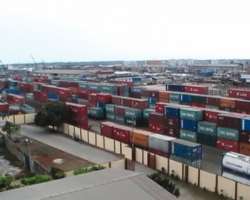Enhancing competitiveness through import duty waivers - THE CITIZEN

A major accomplishment of the present administration is the strengthening and effective implementation of investment friendly policies to enhance domestic production and local competitiveness. The introduction of broad-based incentives such as waiver of customs duty and VAT on industrial equipment, which benefits the entire industrial sector, has brought the nation closest to the realization of the intended benefits of these policy incentives.
While the policy incentives themselves are not new, the desired positive impacts on domestic production had been significantly limited by poor implementation process in the past. Dr. Ngozi Okonjo-Iweala, finance minister and coordinating minister for the economy gets the credit for taking steps to streamline the policy incentives in order to attract investments in priority sectors of the economy.
The new structure permits broad-based application of the policy incentives, which is the critical element of the reform that the industrial sector has since been pressing for. This has created a favourable environment to bring the benefits of government policy incentives to the entire production sectors of the economy and consequently to the Nigerian public.
Waiver of import duties and VAT on importation of plant and machinery is a major policy incentive needed at this stage of Nigeria's industrial development to prop up local industries and prevent destructive external competition. It therefore provides an environment for industrialization to take roots in the economy and equip local operators to compete in both the local and international markets. This has worked exceptionally well in cement production where domestic output has expanded rapidly to meet the demands of our large domestic market and for export.
The manufacturing sector in Nigeria faces considerable competitive disadvantages that bear on cost of production. These reflect the continuing poor infrastructural support and high dependence on imported raw materials, equipment and technology. It therefore follows that without a well administered system of duty waivers and other output stimulating incentives, it would be extremely difficult for local industries to produce and sell in our market that is ruled by cheap imports.
The broad-based system of incentives therefore represents a life support to local manufacturers in a situation in which they otherwise cannot survive or compete. Cost reduction has become the most effective competitive tool in the world today. With it, China has maintained a level of economic growth unmatched anywhere else in the world. With it, Chinese companies have captured a large share of leading consumer markets around the world, including Nigeria and are still gunning for more.
An effective system of incentives to the industrial sector is therefore a big step by government in the right direction. This is especially in the light of the problem of public infrastructure deficit facing Nigeria, which makes business operation a high cost endeavour. Duty and VAT exemptions tend to compensate to a large extent for our infrastructural disadvantage when it comes to investment considerations. It has led to significant progress in the oil and gas sector, which is now providing the central plank for the gas-to-power initiative.
We expect that the incentives will go a long way to helping manufacturers achieve substantial cost reduction. If they are enabled to bring down cost of sales, they will be able to compete favourably with imported finished goods and in the process reclaim some lost markets. The opportunities for increased output, employment and consumption that this will create in the industrial sector as well as the multiplier effects on the rest of the economy are immense.
Manufacturers have acknowledged that the broad-based regime of incentives have empowered their operations greatly. It is important that government ensures that the enabling policy environment for new investments and operations of the industrial sector is maintained and further improved. At the same time, manufacturers themselves should also take steps towards internal dependence in order to achieve international competitiveness in the long-term. The most dependable way of reducing cost, growing output and sales volume as well as improving margins is by increasing the local content of made in Nigeria products.
